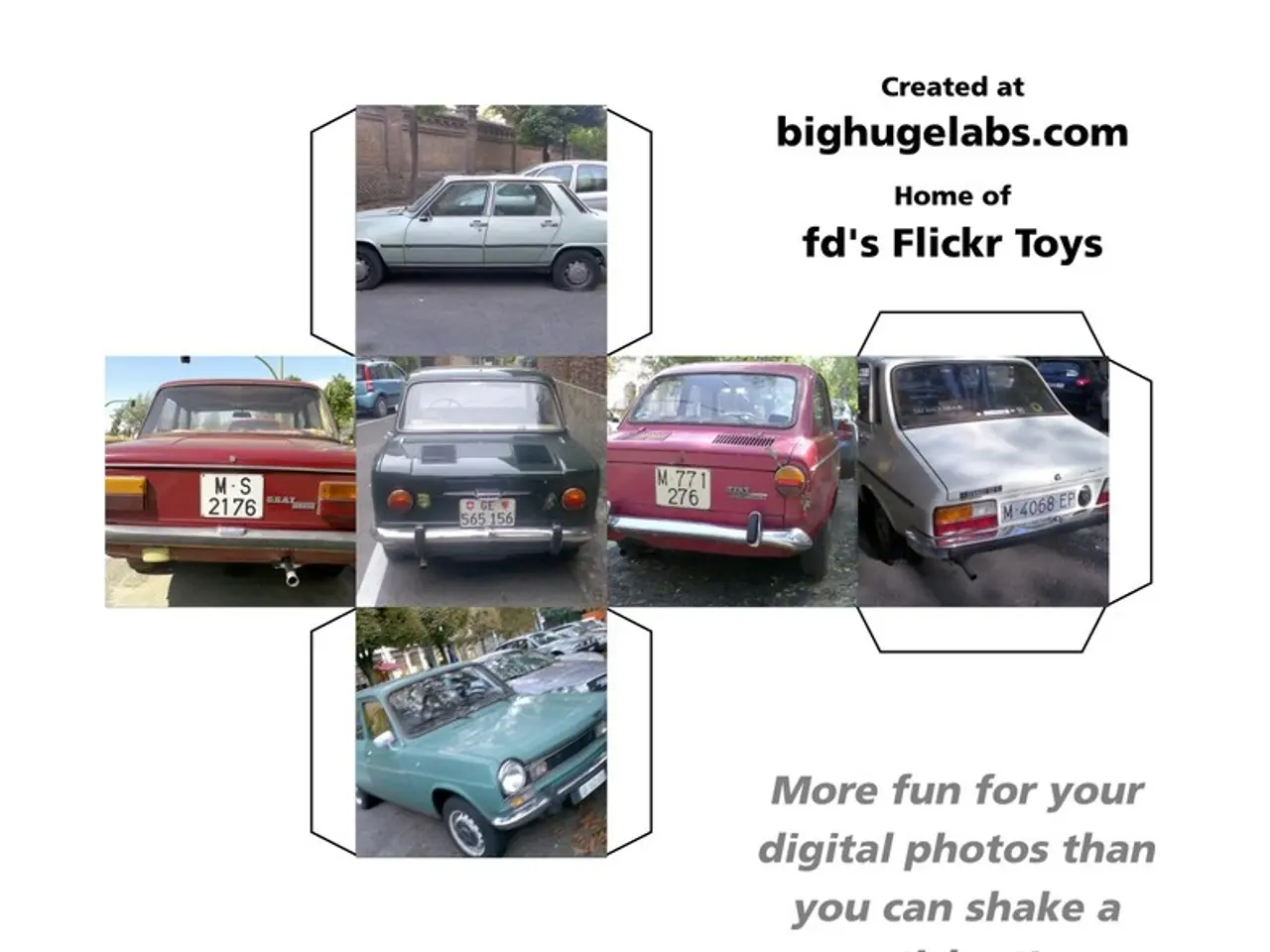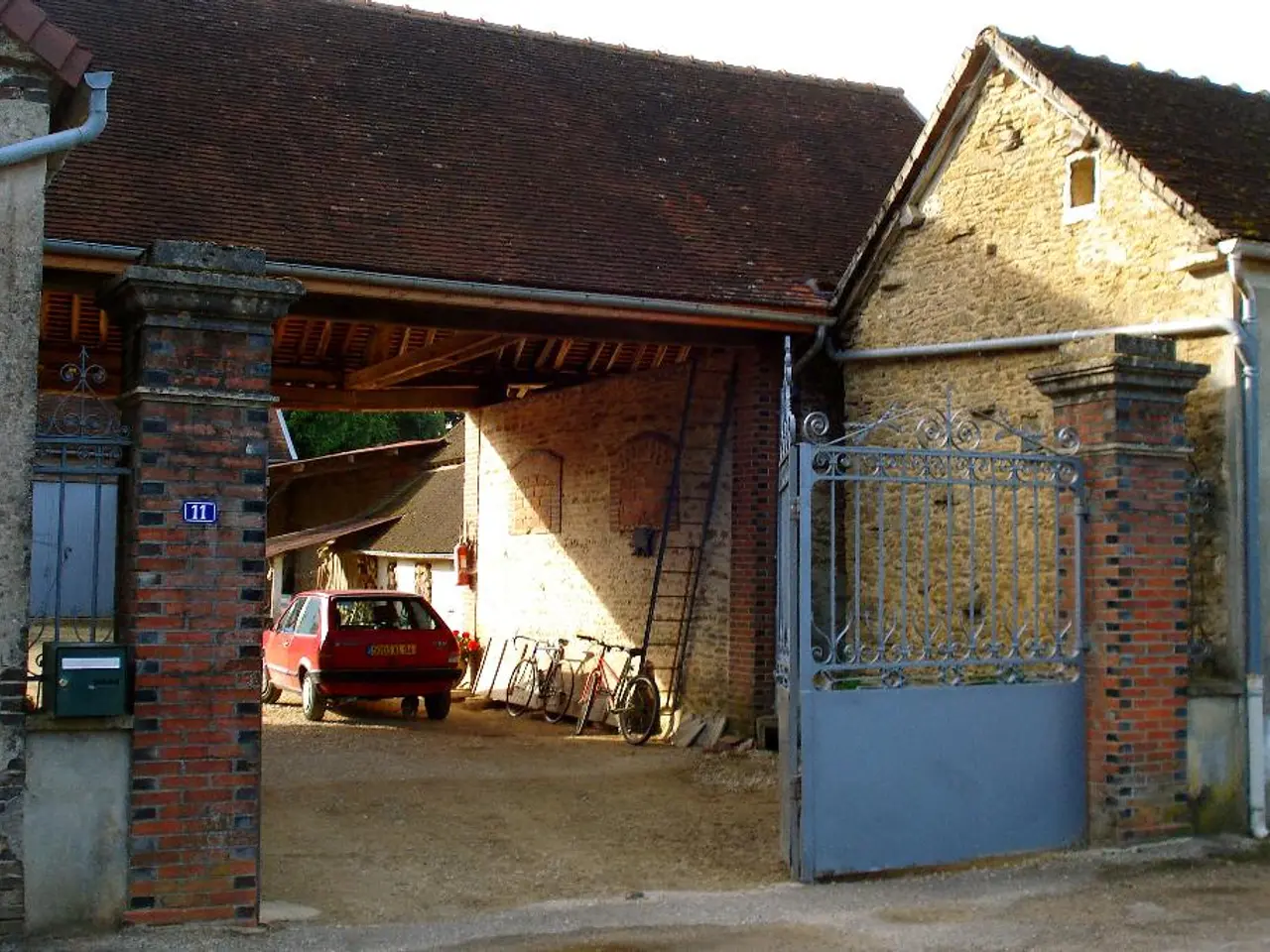Alterations in the economic landscape
The automotive industry in Baden-Württemberg, a region renowned for its thriving car manufacturing sector, is currently navigating significant challenges related to digitalization, infrastructure repair, and artificial intelligence (AI), compounded by broader structural and economic pressures.
Key Challenges
- Industrial and Job Market Decline The automotive sector in Germany, including Baden-Württemberg, is experiencing a severe jobs massacre due to the shift to electric vehicles (EVs), supply chain disruptions, and economic uncertainty. Major firms like Mercedes, BMW, Porsche, and key suppliers Bosch, ZF, Schaeffler, and Continental are cutting tens of thousands of jobs and downsizing operations. Investment in Germany’s automotive suppliers is being postponed, relocated, or canceled by over 75% of firms, posing a major threat to Baden-Württemberg’s automotive ecosystem and regional employment[1].
- Digitalization and Software Development The transition to digital technologies and electric mobility demands greater software expertise. Baden-Württemberg is responding with initiatives such as the Automotive Software Collaboration BW, which promotes open-source software development and knowledge transfer to strengthen the automotive software landscape. This initiative involves government ministries and automotive giants (Porsche, Bosch, Mercedes-Benz) collaborating to support especially small and medium enterprises (SMEs) in adopting software innovations. This digital collaboration aims to preserve Baden-Württemberg’s leadership in the automotive sector in Europe[2].
- Infrastructure Repair and Modernization While explicit references to infrastructure repair for the automotive industry in Baden-Württemberg are limited in the search results, it is widely recognized in industry discourse that maintaining and upgrading transport and charging infrastructure for EVs is crucial to support the shift to electrification and connected vehicles. This includes high-capacity charging stations, smart grids, and digital infrastructure integrated into urban planning.
- Artificial Intelligence (AI) Integration The search results do not provide detailed specifics on AI challenges in Baden-Württemberg’s automotive sector. However, AI is critical for innovations such as autonomous driving, predictive maintenance, and optimizing manufacturing processes. The need for AI expertise aligns with the broader talent shortage the industry faces, as over 20,000 automotive jobs remain unfilled in related technical fields—highlighting a pressing skills gap[4].
- Economic and Sectoral Transition The decline in automotive demand and the drive for electrification are prompting a regional pivot towards alternative sectors such as defense technology. Baden-Württemberg is actively seeking to expand its defense industry, leveraging its industrial base and technological competencies as an adaptation strategy. This represents both a challenge and a potential solution for regional economic stability[3].
Potential Solutions and Strategic Responses
- Strengthening Collaborative Software Development The Automotive Software Collaboration BW acts as a model to foster open innovation, enhance software quality, security, and compliance, and help smaller companies engage with digital transformation processes with governmental support[2].
- Upskilling and Talent Development Addressing the shortage of skilled workers, especially in software and AI-related fields, through targeted training programs, apprenticeships, and partnerships between industry and academia is essential to maintain innovation capacity[4].
- Infrastructure Investment Accelerated investment in charging infrastructure, digital connectivity, and smart transport networks is needed to facilitate EV adoption and connected car technologies. Government and industry cooperation is vital here (though precise initiatives in Baden-Württemberg need further detail).
- Industrial Diversification and Defense Sector Expansion Baden-Württemberg’s strategy to diversify into defense technology manufacturing provides a pathway to soften the economic impact of automotive contraction, securing jobs and attracting investment in advanced technology fields[3].
- Policy Support and Incentives Continuation and expansion of state-level initiatives that support EV production, software innovation, and green technologies, including subsidies, research funding, and regulatory frameworks, will be crucial.
Summary Table of Challenges and Solutions
| Challenge | Potential Solutions | |-------------------------------|------------------------------------------------------------------------| | Job losses and investment cuts | Regional diversification, job retraining, defense sector expansion[1][3] | | Digitalization and software gap | Collaborative open-source software projects, SME support programs[2] | | Infrastructure repair | Increased investment in EV charging and digital infrastructure (inferred) | | AI and talent shortage | Upskilling programs, recruitment drives, industry-academia partnerships[4] | | Industry transition pressure | Government incentives, innovation hubs, strategic pivot to future sectors[3] |
In conclusion, Baden-Württemberg’s automobile industry is confronting major structural disruptions, including workforce reductions and investment pullbacks, compounded by the challenges of digital transformation and AI integration. Simultaneously, targeted collaborative initiatives in software development, workforce upskilling, infrastructure enhancement, and industrial diversification provide actionable pathways to mitigate these challenges and maintain the region’s competitive edge in the evolving automotive landscape.
[1] https://www.handelsblatt.com/unternehmen/automotive/eine-jobs-massaker-in-der-deutschen-autobranche-die-schreckliche-zahlen-der-krisenjahre/26636354.html [2] https://www.adac.de/presse/pressemitteilungen/2021/03/16/neue-initiative-fuer-automotive-software-in-baden-wuerttemberg [3] https://www.sueddeutsche.de/wirtschaft/baden-wuerttemberg-verteidigung-industrie-1.5374412 [4] https://www.tagesspiegel.de/wirtschaft/auto-industrie-verliert-an-kruefen-und-krueft-die-fachkrraft-knappheit-aus/27493670.html
- In addressing the economic and sectoral transition faced by the automotive industry in Baden-Württemberg, policy support and incentives aimed at EV production, software innovation, and green technologies will be essential.
- The integration of artificial intelligence (AI) in areas such as autonomous driving, predictive maintenance, and optimizing manufacturing processes necessitates upskilling programs, recruitment drives, and industry-academia partnerships to meet the AI expertise demand and alleviate the current talent shortage in related technical fields.




